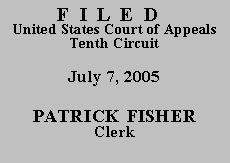

| UNITED STATES OF AMERICA, |
|
Although this case presents no Sixth Amendment error, the district court did sentence Mr. Marquez-Calderon under the erroneous belief that the Guidelines were mandatory, thus committing non-constitutional Booker error. See, e.g., United States v. Williams, 403 F.3d 1188, 1199 (10th Cir. 2005). Because this issue was not raised during sentencing, we review for plain error. United States v. Gonzalez-Huerta, 403 F.3d 727, 732 (10th Cir. 2005). On appeal, the government concedes that Mr. Marquez-Calderon has demonstrated (1) that the district court committed error, (2) that the error was plain, and (3) that the plain error affected his substantial rights. Aplee. Br. at 15-16. Accordingly, the only issue on appeal is whether we exercise our discretion to correct an error that affects the fairness, integrity, or public reputation of judicial proceedings. United States v. Cotton, 535 U.S. 625, 631 (2002). We will only exercise our discretion when an error is "particularly egregious" and the failure to remand for correction would produce a "miscarriage of justice." Gonzalez-Huerta, 403 F.3d at 736 (citation and internal quotation omitted). In contrast to many cases involving non-constitutional Booker error, Mr. Marquez-Calderon's case meets this fourth element, given his sentence and the statements by the sentencing judge. Because the district court expressed a desire to sentence below a guideline range from which he felt he could not deviate, allowing Mr. Marquez-Calderon's sentence to stand would call into question the fairness, integrity, and public reputation of judicial proceedings.
For the foregoing reasons, Mr. Marquez-Calderon's sentence is VACATED and REMANDED for resentencing. Mr. Marquez-Calderon's motion to waive oral argument and for expedited decision is granted.
Entered for the Court
Paul J. Kelly, Jr.
Circuit Judge
*. This order and judgment is not binding precedent, except under the doctrines of law of the case, res judicata, and collateral estoppel. This court generally disfavors the citation of orders and judgments; nevertheless, an order and judgment may be cited under the terms and conditions of 10th Cir. R. 36.3.
2. After examining the briefs and the appellate record, this three-judge panel has determined unanimously that oral argument would not be of material assistance in the determination of this appeal. See Fed. R. App. P. 34(a); 10th Cir. R. 34.1(G). The cause is therefore ordered submitted without oral argument.